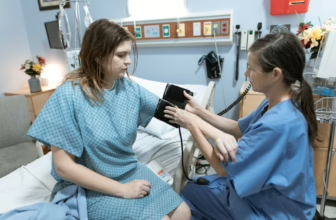Envision a healthcare system where every voice, especially those of people with disabilities, shapes equitable care. As a student navigating disability, chronic illness, or caregiving, you hold the potential to drive this change. Online MSW advanced standing programs offer a flexible, empowering path to master skills that dismantle systemic barriers. This article reveals how these programs equip you to champion health equity for disability communities.
Consider the quiet strength of a student managing chronic fatigue while studying late into the night, or a caregiver advocating for a loved one's mental health care in a system that feels like a labyrinth. These experiences fuel a passion for change. Online Master of Social Work (MSW) advanced standing programs provide a dynamic platform for students with disabilities and their allies to gain expertise in addressing health inequities. This article explores how such programs transform personal challenges into professional impact, fostering advocates who reshape healthcare access.
Flexible Learning for Diverse Needs
Traditional education often demands rigid schedules and physical presence, which can feel like insurmountable hurdles for students with disabilities or those juggling caregiving roles. Programs such as those at Cleveland State University, which deliver online MSW advanced standing programs, break these barriers by offering a master's degree in as little as one year, entirely online, with asynchronous coursework. You can engage with materials on your terms, supported by accommodations like:
- Asynchronous coursework, allowing study around health or caregiving needs.
- Captioning tools, enabling access for students with hearing impairments.
- Flexible deadlines, accommodating chronic illness flare-ups.
A caregiver, for instance, can study after hours, while a student with visual impairments leverages assistive technologies.
This flexibility resonates deeply with adult learners. Data from the National Center for Education Statistics (2020) shows 11% of graduate students report disabilities, and online programs significantly enhance their access to higher education. By eliminating logistical constraints, these programs ensure you can pursue a career in social work without compromising health or responsibilities, paving the way for impactful contributions to health equity.
Training to Tackle Health Inequities
Health disparities for people with disabilities are profound. The World Health Organization notes that 1.3 billion people globally live with significant disabilities, facing heightened risks of premature mortality and chronic conditions due to barriers like inaccessible clinics or untrained providers (International Journal for Equity in Health, 2023). MSW programs train you to address these challenges through curricula focused on policy advocacy, cultural competence and trauma-informed care. You learn to navigate complex systems, challenge ableist practices and advocate for inclusive healthcare policies.
Take, for example, a social worker supporting a client with cerebral palsy who faces delays in accessing mental health services. MSW training equips you with skills to conduct needs assessments, connect clients to resources, and push for systemic change, aligning with guidelines like the Care Act 2014. For students with disabilities, this education is personal—your experiences become a lens to craft solutions that ensure equitable care for all.
Empowering Advocacy Through Lived Experience
For students with disabilities, online MSW programs are a springboard for advocacy rooted in lived experience. Coursework often incorporates projects that invite you to draw on personal or community challenges. How might your own encounters with inaccessible healthcare shape a policy proposal for better clinic access? A student with a visual impairment, for instance, might propose braille signage in medical facilities, informed by their own navigation struggles. This approach echoes the UN Convention on the Rights of Persons with Disabilities, which emphasizes inclusion in health system planning.
Caregivers and family members also find their perspectives valued. A 2021 study in Rehabilitation Psychology highlights how families of people with serious mental illness often navigate healthcare systems as advocates—skills sharpened through MSW training. Virtual discussion forums in online programs foster collaboration, allowing you to share insights with peers, from managing chronic pain to advocating for loved ones. This exchange transforms personal struggles into collective strategies for change.
Fostering Resilience Through Accommodations
Pursuing an MSW while managing a disability or caregiving demands resilience. Online programs support this with accommodations like accessible course materials or flexible deadlines, ensuring you can thrive academically without sacrificing well-being.
The National Center on Health, Physical Activity and Disability advocates holistic wellness, such as mindfulness and exercise, to support people with disabilities, principles often embedded in MSW curricula. These programs teach self-care strategies you can apply personally and share with clients, fostering resilience across contexts.
Creating a Virtual Community
Beyond academics, online MSW programs cultivate a virtual community. Envision students connecting over late-night Zoom calls, swapping strategies for managing anxiety or navigating healthcare bureaucracies.
This camaraderie counters the isolation often felt by those with disabilities, especially during disruptions like the COVID-19 pandemic, which amplified mental distress (CDC, 2023). By building a network of peers, these programs prepare you to lead with empathy and collaboration in the fight for health equity.
Shaping a Transformative Career
The need for social workers is surging, with the U.S. Bureau of Labor Statistics projecting a 7% job growth rate through 2033, driven by demands to address complex issues like disability inclusion. Online MSW graduates are well-equipped to meet this need, with skills to tackle barriers such as healthcare costs or societal stigma. For students with disabilities, this career path offers a chance to reshape systems that have often underserved them, turning personal challenges into professional purpose.
The road isn't always smooth. Balancing studies with health or caregiving can feel like navigating a complex challenge. Yet, the flexibility of online programs, paired with their focus on equity-driven skills, makes the journey achievable. Graduates emerge ready to lead initiatives that ensure healthcare is accessible and inclusive, from policy advocacy to direct client support.
Online MSW advanced standing programs transform lived experiences into professional expertise, empowering students with disabilities and their allies to dismantle health inequities. By blending flexibility with rigorous training, these programs cultivate advocates who can build a more inclusive healthcare system, one client, policy, or community at a time.
Follow me down the rabbit hole!
I'm Alice and I live with a dizzying assortment of invisible disabilities, including ADHD and fibromyalgia. I write to raise awareness and end the stigma surrounding mental and chronic illnesses of all kinds.








